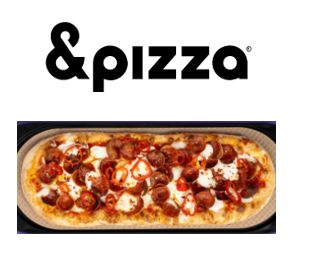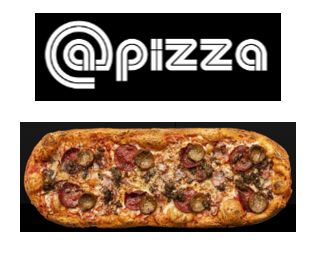IMAPizza LLC operates the &pizza chain in the United States. IMAPizza alleged that At Pizza Ltd., an Edinburgh, Scotland company, operating under the name @Pizza, created an unauthorized copycat version of IMAPizza's &pizza restaurant. The Court of Appeals for the D.C. Circuit recently affirmed the dismissal of IMAPizza's copyright and trademark infringement claims against At Pizza. The D.C. Circuit agreed with the district court's conclusions that IMAPizza failed to allege any domestic copyright infringement or that At Pizza's actions created any effect on U.S. commerce that could justify extraterritorial application of the Lanham Act.
According to IMAPizza, the owners of At Pizza—both U.K. citizens—visited &pizza restaurants while traveling in the United States and created a copycat pizza restaurant in Edinburgh shortly after returning to Scotland. IMAPizza alleged that defendants' @pizza restaurant copied the "same look and feel" of its &pizza restaurants, as well as &pizza's "architectural and interior designs," the oval shape of the pizza, and other features. IMAPizza also alleged that At Pizza infringed the &pizza trademark by choosing @pizza as the name of its restaurant business. The U.S. District Court for the District of Columbia dismissed IMAPizza's suit for failure to state a claim and without leave to amend, and the D.C. Circuit reviewed the dismissal de novo.
|
IMAPizza logo and oval pizza: |
At Pizza logo and oval pizza: |
|
|
|
The parties agreed that the applicability of the Copyright Act depended on whether IMAPizza had alleged an act of "domestic infringement." IMAPizza claimed that At Pizza took pictures of &pizza restaurants and made unauthorized copies of three copyrighted pictures of &pizza restaurants, thereby infringing IMAPizza's exclusive rights in its photographs and architectural design plans. Specifically, IMAPizza alleged that At Pizza infringed IMAPizza's reproduction rights by unlawfully downloading its pictures from U.S. servers, including from websites like yelp.com and flydulles.com. Importantly, IMAPizza did not allege that At Pizza downloaded the images to computers located in the United States. According to IMAPizza, downloading copyrighted pictures from servers located in the United States constituted an act of infringement "regardless of where the receiving computer was located."
The district court and the D.C. Circuit disagreed with IMAPizza, pointing out that courts look to where the copy was made to determine where infringement occurs. IMAPizza provided no support for the proposition that downloading a picture from a server located in the U.S. creates a copy of that picture in the U.S. in addition to the copy where the receiving device is located. The D.C. Circuit reiterated that a copy is made where the picture is reproduced for a viewer, and that the definition of "copy" does not include the "ephemeral transmission of a picture across the internet." Because IMAPizza had not alleged that At Pizza downloaded the images to computers located in the United States, IMAPizza had not alleged that At Pizza created copies in the United States. In fact, At Pizza downloaded the pictures to computers in the U.K., which created copies in the U.K. Therefore, IMAPizza's allegations did not establish domestic infringement.
The court also rejected IMAPizza's argument that taking photographs of &pizza restaurants were infringing acts, because the Copyright Act did not prevent At Pizza from taking pictures of architectural works located in or ordinarily visible from a public place. IMAPizza then argued that the picture-taking "culminated with the opening of an infringing restaurant in Scotland." IMAPizza asserted that it could recover for At Pizza's foreign conduct through the "predicate act" doctrine, which permits a plaintiff to recover damages for foreign conduct if a defendant has committed a domestic act of copyright infringement which enabled further acts of infringement abroad. Critically, however, none of At Pizza's alleged acts constituted infringement within the United States (i.e., defendants traveling to the United States to access &pizza restaurants; defendants taking pictures during those visits; and defendants' downloading of copyrighted pictures from U.S. servers to servers located abroad). Accordingly, IMAPizza failed to state a claim for copyright infringement.
Regarding IMAPizza's trademark claims, IMAPizza asserted that At Pizza infringed IMAPizza's trademarks and "other features of its business." IMAPizza urged the D.C. Circuit to apply the Ninth Circuit's test for determining whether the Lanham Act applies to conduct abroad, i.e., whether the conduct has "some effect" on U.S. commerce. The court concluded, however, that even under the Ninth Circuit's test, the facts of the case did not plausibly involve an effect on U.S. commerce. Importantly, the defendants were foreign citizens, their "quintessentially local" pizza restaurant operated solely in the U.K., they did not purchase supplies from or made sales in the U.S., and IMAPizza had not alleged that At Pizza's products or advertisements "filtered through" to the United States.
Finally, IMAPizza alleged that a potential business partner was confused about the potential relationship between &pizza and @pizza, and that American tourists or students visiting @pizza could be confused as to the restaurants' relationship. In both instances, however, IMAPizza failed to allege that the actual or potential confusion had caused it harm or affected U.S. commerce, or would do so. Moreover, IMAPizza did not allege that the potential business partner was located in the United States. Absent an alleged effect on U.S. commerce, IMAPizza's trademark claims failed.
Although the D.C. Circuit affirmed the dismissal of IMAPizza's case, it also noted that it was "not blind to the difficulty IMAPizza may encounter in trying to enter the U.K. market now that At Pizza has established a copycat restaurant there" and that "it is quite possible IMAPizza would be able to obtain relief under the Lanham Act" if IMAPizza had alleged that At Pizza's conduct affected U.S. commerce.
The case is IMAPizza, LLC v. At Pizza, Ltd., No. 18-7168, 2020 U.S. App. LEXIS 22294 (D.C. Cir. July 17, 2020).
The content of this article is intended to provide a general guide to the subject matter. Specialist advice should be sought about your specific circumstances.



